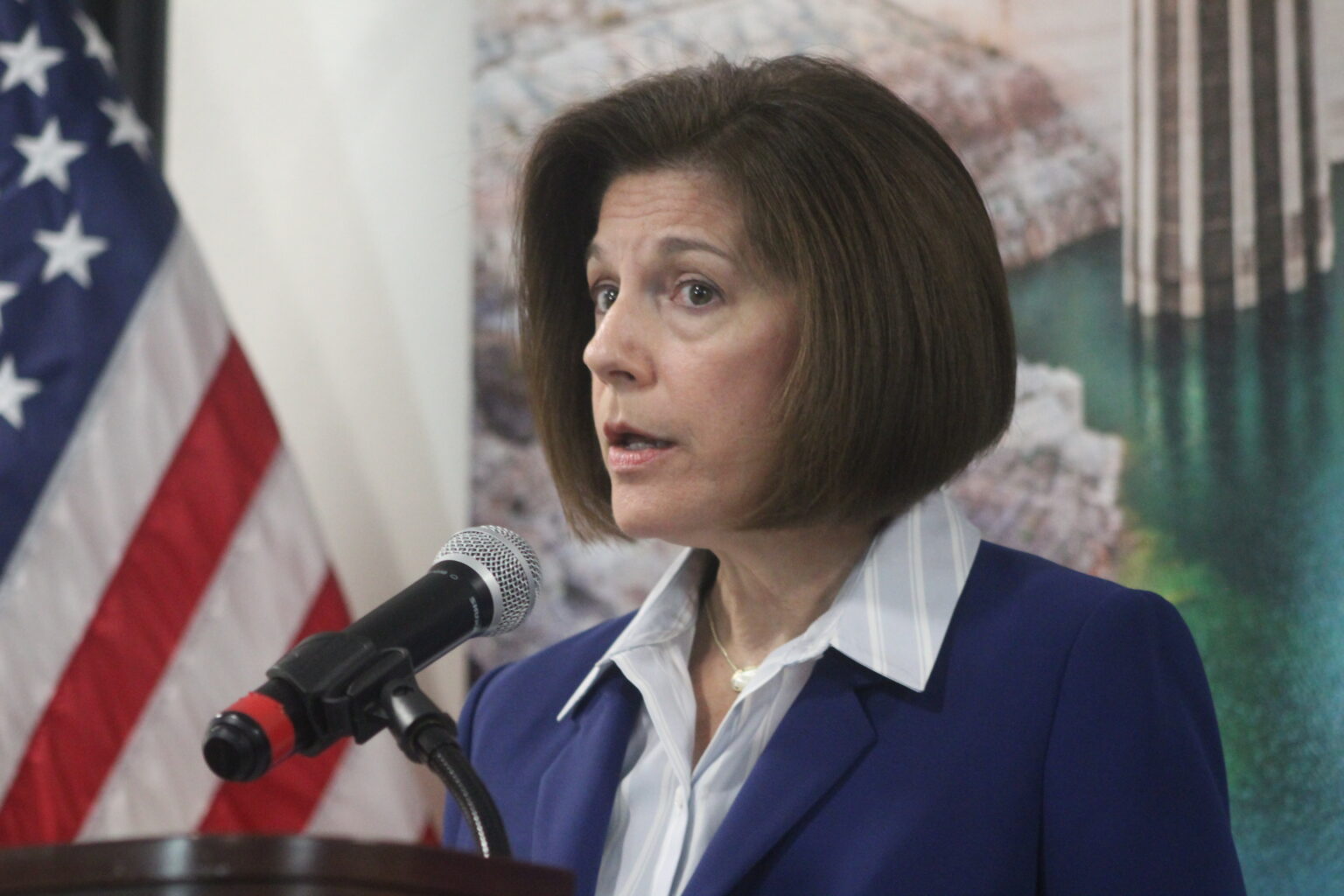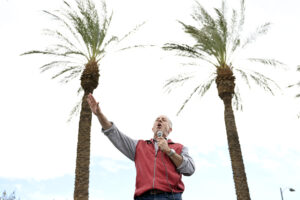Two years ago, Nevada Democratic Sen. Catherine Cortez Masto, in perhaps the most consequential individual achievement of her Senate tenure, single-handedly killed legislation to reform an egregiously industry-friendly federal mining law that was written more than 150 years ago.
This week, Cortez Masto decided she wants to reform the General Mining Act of 1872 after all: She introduced legislation to make it even more industry-friendly.
The bill is co-sponsored by Idaho’s two Republican senators, Jim Risch and Mike Crapo.
Arizona senator and avant-garde agent provocateur Kyrsten Sinema is also on board, so that certainly speaks to the wisdom and gravity of the proposal.
And so is Cortez Masto’s Nevada colleague, Democratic Sen. Jacky Rosen.
Rosen in 2023 is exactly where Cortez Masto was when she was killing a federal mineral royalty on gold mines in 2021 – on the eve of an election year and hoping not to win rural counties but to at least keep her crushing defeat there to manageable levels. The best way to do that is by doing whatever possible to give mining whatever it wants whenever it wants.
That is not to say that Nevada Democratic politicians are cynical. Nevada politicians of both parties have been obediently kowtowing to the mining industry for so many decades, and their fealty to mining so ingrained, they may actually believe all the words coming out of their mouths.
But that’s always been mostly about gold. Cortez Masto’s legislation is about the mineral industry’s darling of the future, lithium. Specifically, it’s about the Canadian corporation Lithium Americas and its plans for mining lithium at Thacker Pass in Humboldt County.
‘Rushing to do damage control’
The U.S. 9th Circuit Court of Appeals ruled in 2019 that an Arizona copper mine couldn’t dump its mining waste on Forest Service land adjacent to the mine because mining activity had to be confined to land where there are “valuable minerals.”
In Nevada, the Lithium Americas project has been sued by tribes and environmental groups, and Lithium Americas fears the Arizona decision will limit the company’s ability to dump mining waste on Bureau of Land Management land near the Thacker Pass mine.
The ruling from Arizona “is a significant departure from long-held mining practices,” Cortez Masto said in a statement announcing her legislation.
People who are not mining industry cheerleaders argue a significant departure from long-held mining practices is precisely what is needed and long overdue.
“Just when we think we got a small win, the industry calls in a favor for those donations. This move by Senator Cortez Masto is disappointing, we thought she was an ally of the environment,” said Fermina Stevens, Western Shoshone and director of the Western Shoshone Defense Project, one of several Nevadans who slammed Cortez Masto’s legislation this week.
“Now that the judicial system has finally begun to interpret the antiquated 1872 mining law in a way that calls into question the irresponsibility of the mining industry, and begins to offer some benefit to those on the frontlines of extraction, we see the industry rushing to do damage control,” said Sarah Wochele with the Progressive Leadership Alliance of Nevada. “Instead of answering the urgency of impacted communities, Senator Cortez-Masto has been at the beck and call of the most toxic industry in the country.”
Senatorial alarmism for our times
Cortez Masto says the court ruling “could upend responsible mining projects by prohibiting mining-support activities, like waste or processing, on lands that do not contain economically valuable minerals.”
A lot of waste and processing is involved in producing battery-quality lithium carbonate.
But so is a lot of money.
In January Lithium Americas told investors:
- it costs $6,700 to produce a metric ton of lithium carbonate;
- that ton will sell for $36,000;
- the Thacker Pass mine will yield 67,000 tons of it a year;
- and annual earnings will average about $2 billion before taxes, interest, depreciation and amortization.
Lithium Americas also boasts that Thacker Pass is “the largest known measured and indicated” source of lithium in the U.S.
The promise of progress and prosperity, of “taming the savage West,” was invoked by industry and politicians in the 19th century as the rationale for coddling the mining industry. Now the promise is electric vehicles. The valuable mineral might have changed, but the industry’s eagerness to seize the moment for maximum financial advantage and unfettered operational carte blanche remains the same.
The skids have been greased on the Thacker Pass project ever since corporate lackeys in the Trump administration fast-tracked its permits in the final days of his term. Whenever Lithium Americas has said “jump,” both the Bureau of Land Management and the state of Nevada have responded by asking “how high?” If Cortez Masto’s bill becomes law, Lithium Americas will dump its probably pretty nasty waste (the aforementioned processing includes, among other steps, a sulfuric acid plant) wherever it wants.
If Lithium Americas can’t put the waste wherever it wants, that will not, as the senator contends, “upend” the Lithium Americas mine.
But it might make that $6,700 per ton production cost just a little higher.
And that prospect is enough to make Cortez Masto and her faithful sidekick Rosen put on their capes and leap to the mining corporation’s rescue.
Our stories may be republished online or in print under Creative Commons license CC BY-NC-ND 4.0. We ask that you edit only for style or to shorten, provide proper attribution and link to our website. AP and Getty images may not be republished. Please see our republishing guidelines for use of any other photos and graphics.





Hugh Jackson